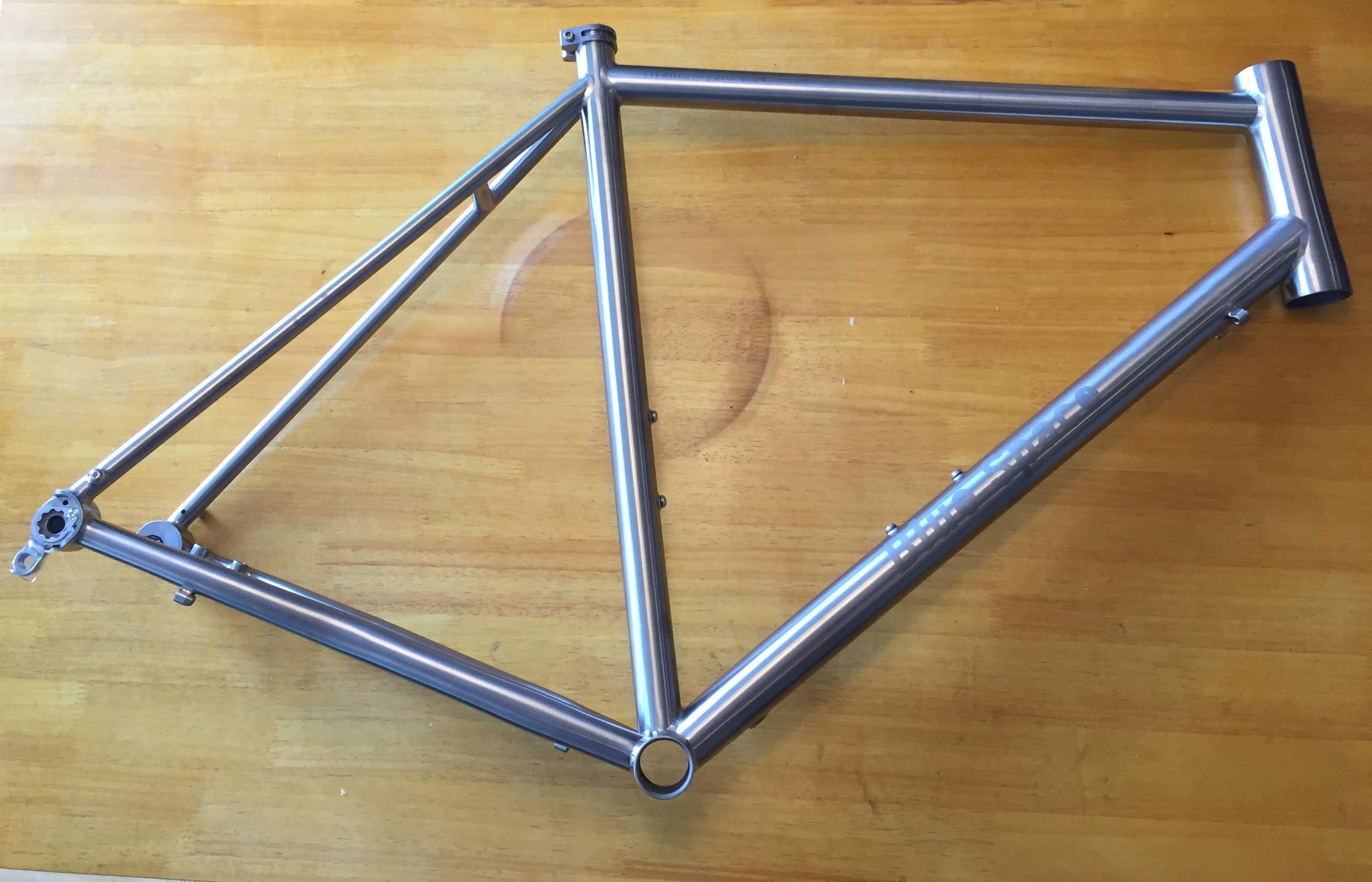It’s well into 2019, so I’m quite late, but here’s my roundup of readings from last year.
Disappointingly, my book count dropped significantly this year compared to previous years. I began several new hobbies this year which cut into my reading time: road cycling, mountain biking, rock climbing, power lifting, and more time spent with Argentine Tango and snowboarding. So this past year has been a very physical year for me. For the upcoming year, I hope to balance things out more, and divert some additional inner-development time to reading. This new year also comes with a new job–I’ve left Google and begun work at Aurora Innovation, so I hope the startup life doesn’t impact this resolution.
That being said, here are the 18 books I read in 2018.
Six Months, Three Days, Five Others by Charlie Jane Anders
I began this “short collection of science fictions” because I loved Charlie Jane Anders’ “All The Birds in the Sky.” Unfortunately the stories didn’t grab me too much. They’re definitely on the soft end of science fiction–not in the Star Wars way, but more ordinary. The stories are very short, life and society is exactly the same as our current one. There are typically one or two characters with a minor twist, and the rest of the novel focuses on these relationships.
Hit Refresh by Satya Nadella
A memoir by Satya Nadella, the current CEO of Microsoft, largely credited with Microsoft’s recent resurgence in the cloud computing, developer tools, and enterprise markets. I expected something similar to In the Plex, or The Everything Store–a well crafted origin story of a modern tech giant that would help me better understand their ethos. I wanted to hear about his origin story, his humble path from India to the top of Silicon Valley and the evolution of Microsoft from his early days in its golden age. Unfortunately, Satya’s memoir mostly rambles on about business decisions he was involved in during the last few years at Microsoft. Bill Gates and the then and now of Microsoft are unfortunately, largely absent.
Endurance by Scott Kelly
Scott Kelly spent a year in space aboard the ISS. Endurance is his light-hearted and prosaic memoir on what long-term space habitation is like. I really like Kelly’s tone throughout the memoir, that he’s basically an everyday Joe who happens to also be an astronaut–something he stumbled into through lots of luck and sheer determination. The book doesn’t try to make bold proclamations about humanity’s future in space or anything like that–rather, it spends most of its pages talking about things you didn’t think of that happen in space. Like how sleep is extra hard because cosmic rays–no longer diverted by Earth’s magnetosphere–continually collide with the back of human retinas, causing continual brief flashes of light even when your eyes are closed.
I highly recommend this book to anyone interested in astrophysics, spaceflight, or science fiction, as it puts it all into a much more real perspective for you.
The Better Angels of Our Natures by Steven Pinker
A thorough walk through humanity’s history with violence and cruelty. The thesis being, despite modern media hyper-focusing our attention onto negative events like terrorism or serial murderers, society as a whole continually makes expoential strides towards becoming more humane. I like the premise of this book, but it dragged on quite a bit.
It starts with some revealing anecdotes comparing pre-modern brutality with the things we consider brutal today. These stories set an interesting stage, but Pinker then proceeds to bombard the reader with chapters and chapters of studies and statistics that make an empirical argument for his case. I realize by the end that Pinker’s thesis is certainly right, but I ultimately don’t find it very interesting. Knowing that the world is empirically a better place now doesn’t make me feel any better as it’s impossible for me to not continually yearn for improvement in the world.
My Promised Land: The Triump and Tragedy of Israel by Ari Shavit
In recent years, I’ve become more and more interested in Israel. It’s a culturally homogenous society that highly values education and technology. With that, they pulled off the second great economic miracle of the 20th century–the first being China’s. A rural and barely agricultural desert transformed into a nuclear-armed first-world nation that leads the world in cybersecurity.
So I sought out a book explaining the history and rise of Israel, and Ari Shavit’s work seemed the most aligned to my interests. It starts by explaining the early bourgeoisie European surveyors who dreamed of a Jewish homeland. It continues through to the early cooperation between Jewish settlers and the Arab villagers. Then it escalates as Israel forms after WWII and begins its eviction of native Palestinians. The successive decades then pass as Israel pulls through successive wars with its Arab neighbors. Then it finishes with the most recent Palestinian conflicts and the state of modern Israeli culture.
Ari Shavit tells the story using three different novelistic styles: memoirs, historical explanation, and vignettes of individuals. This lends it good pacing and breadth of experience. There are big picture explanations, and then there are brief interviews with individuals that color the narrative.
I’d highly recommend it to anyone interested in Israel’s history.
Alone on the Wall by Alex Honnold
I started rock climbing in 2018. To get into the right mood, I sought narration on the trailblazers in this sport. There’s no one more well known than Alex Honnold, who is the world’s foremost free-soloer. Free-soloing is climbing with no ropes or protection gear, meaning if you fall you die. Honnold’s book is short, straightforward, and genuine. There’s no elevated prose. He basically just talks about why he does what he does, and what it’s like to train for and set these free-solo records. It’s very entertaining and inspiring to read about trailblazers in such a dangerous sport, and reading Honnold’s book certainly helps me appreciate the primitive joy of climbing.
Altered Carbon by Richard K. Morgan
Netflix released a hot new sci-fi series about a futuristic world where people’s minds can be easily swapped between bodies, like changing a “sleeve.” It’s a very compelling concept, and the cast is amazing, but the latter half of the series left me wanting. From my conversations with friends who had previously read the books, the series took some artistic licensing with the storyline, and the result was a less cohesive narrative. So I decided to read the novel to see what I was missing.
I definitely enjoyed the book despite already knowing what would happen. It starts a bit slow, but I really appreciate Morgan’s writing style. He writes very concisely while masterfully alternating between the extremes of subtlty and bluntness. For example, he starts many chapters by throwing you right into a narrative without any setup, letting it slowly dawn on you what is really happening–generally something that surprises you, even though I had already watched the series!
Overall, read/watch this series if you’re interested in futurist or science fiction content.
Everything Happens for a Reason, and Other Lies I’ve Loved by Kate Bowler
This memoir comes from Bill Gates’ Summer 2018 Reading List. It’s yet another well-written memoir by someone dying of cancer. Fortunately, but perhaps less poignant, Bowler’s story has a happy ending.
I finished her memoir in a weekend. It’s short but packed. No stories or anecdotes are wasted–she utilizes every word to recreate her journey for you in a candid and honest manner. I really appreciate how vulnerable she allows herself to be with the reader–sharing her deepest fears and embarassments. Cancer is ugly and terrible, there’s no point to putting on airs.
After just a few short chapters, Kate feels like a close friend of mine. I shed some real tears halfway through the book, comparing her family’s sacrifice to situations in my own. I highly recommend Kate’s memoir, but you should go in expecting to feel emotionally heavy afterwards.
Broken Angels by Richard K. Morgan
The second book in the Altered Carbon series is set in the same universe and follows the same main character. But it’s in a totally different society on a totally different world. It’s less a sequel and more of a distinct novel set in the same universe. Whereas the first novel largely examined the stacks’ effect on human society, this novel explores the alien artifacts that led to the stack technology. It focuses much more on combat and warfare–like a more traditional warfare science fiction.
I initially didn’t like it. It started off slowly and I expected a much closer connection to the first novel. But by the end, I enjoy it as much if not more so than the first novel. It introduced many novel new applications of stack technology and futuristic weapons in general, for example, what warfare is like when bodies are actually expendable.
A solid entry into the Altered Carbon series. I look forward to it’s upcoming Netflix release.
Woken Furies by Richard K. Morgan
This is the third book in the Altered Carbon series. I liked them so much that I read all three books nearly successively. Woken Furies returns to Kovac’s origin Harlan’s World, exploring the unique society growing underneath invincible alien orbitals that incinerate anything that flies up into the air. Unfortunately, the plot is a notch below the first two novels. The characters are less likable, less relatable, and they fail to draw the reader into caring about the eventual outcome in the same way. It was worth finishing, but I wouldn’t recommend it unless you really liked the series.
Leftover in China by Roseann Lake
A hilarious, telling, and thought-provoking investigation into gender roles in modern China. It’s basically a compilation of interviews and observations Roseann made of her female friends over several years living as a westerner in China. It explains the sociological effect of China’s decades long one-child policy combined with its societal preferences for male heirs. Despite the gender imbalance, there is an entire generation of “leftover” women in China–women who put aside marriage for career or are too highly educated. Neither rural nor urban men want them because they prefer submissive, domesticated wives. It’s a page-turning exposé on the state of gender in the world’s most populous nation.
Foundation by Isaac Asimov
Foundation is one of the most famous science fictions from the Golden Age of Sci-Fi. It introduces a novel concept called Psychohistory, wherein applying analytical methods on historical and societal forces accurately predicts the future on a macroscopic scale. It follows the formation of “The Foundation” which is supposed to last hundreds-thousands of years into the future and save galactic humanity from an “age of barbarism.”
I didn’t expect too much since I generally find old sci-fis to not age well(not a fan of Dune). But Asimov pleasantly surprised me. The plot contains some surprising twists and moves along quickly, not leaving enough time to get bored. This is also the highest vocaulary novel I’ve read in awhile, requiring me to lookup quite a few words. Perhaps English has devolved in the last 50 years and people wrote more intelligently in the past.
Foundation and Empire by Isaac Asimov
The sequel to Foundation. Pretty much more of the same. Your opinion of the first one carries over exactly to the second one. I tired of the series by the end of this book, so I didn’t reserve the third one. But I may pick it up again in the future.
Ignition by John D. Clark
A casually-told history of the early days of rocket fuels. It deeply surveys the earliest rocket fuel experimentors along with the qualities and properties of the fuels they developed. I expected interesting stories about mad scientists and the crazy experiements they performed–of which there is some–but ultimately it got bogged down in literally describing the chemical makeup of hundreds of different types of fuels. That detail goes over the head of a layman, so I could not finish this book.
The Man Without a Face, The Unlikely Rise of Vladimir Putin by Masha Gessen
The narrative around the fall of the Soviet Union, the initial formation of Russia, and the subsequent rise of Vladimir Putin. The writing is very good, but it almost doesn’t need to be, because the subject writes itself–societal collapse and rapid transformation create stories and scenarios that couldn’t be imagined in the West. Modern day Russia is this strange bizzaro-world mixture of nepotism, rampant capitalism, corruption, and state suppression. The Soviet Union has fallen, but what rose in its place is even stranger.
Ball Lightning by Liu Cixin
Liu Cixin’s only other full novel besides the Three Body Problem Trilogy, Ball Lightning’s English translation finally released in the fall. It’s a short novel that imagines an interesting origin for the real-life unexplained phenomena of Ball Lightning. It follows one main character and his life-long obsession with the phenomena. Like in the Three Body Problem, I found it difficult to identify and sympathize with the protagonist. I enjoyed the book as a brief interlude, but it left me desiring for a more drawn out and substantial plot. Liu himself claims that it’s a very different style of science fiction compared to TBP, Ball Lightning harkening back towards what a traditional Chinese science fiction would be–discovery/invention of a new technology followed by examination of its effects on society.
How to Fail at Almost Everything and Still Win Big by Scott Adams
A bit of a weird self-help book. Scott Adams is a guy whom I can describe as hopelessly optimistic, ridiculously stubborn, and lucky through perseverance. He recounts his humble upbringings and his odd path to success. He gives you advice based on his experience, which I honestly don’t think works that well. For example, he suggests you charge through life trying and becoming okay at random new skills, with the belief that eventually you’ll stumble upon a combination of things you’ve tried that coincidentally fit into a niche and bring you success. Unfortunately, I didn’t come away with any positive insights after reading his book.
Fire & Blood by George R. R. Martin
George R. R. Martin somehow found time to publish a 736 page historical chronical of Targaryen rule… meaning he was not writing The Winds of Winter during all that time. I’m glad there is some additional content to fill the time, but I really wish he’d get the next ASOIF novel out. I guess I’m lucky I didn’t start reading ASOIF until my college years, since the first novel came out in 1996, meaning this series has spanned and will span much of my living lifespan.
Anyway, it’s a historical telling in the same vein as A World of Ice and Fire–broad strokes and juicy details about the major historical figures from each era since Aegon’s conquest. Interestingly, the novel takes the perspective of a latter maester who compiles the written accounts of 2 previous maesters and a court fool. So events have conflicting accounts and the reader must make his/her own interpretation.
Overall it’s enjoyable, although I tended to rapidly skim past paragraphs where forgettable lords and houses are listed ad-nauseum. Also I sighed as I read through the story of the Dance of the Dragons for the third time, once in A World of Ice and Fire, once again in The Princess and the Queen, and now again in Fire & Blood.


